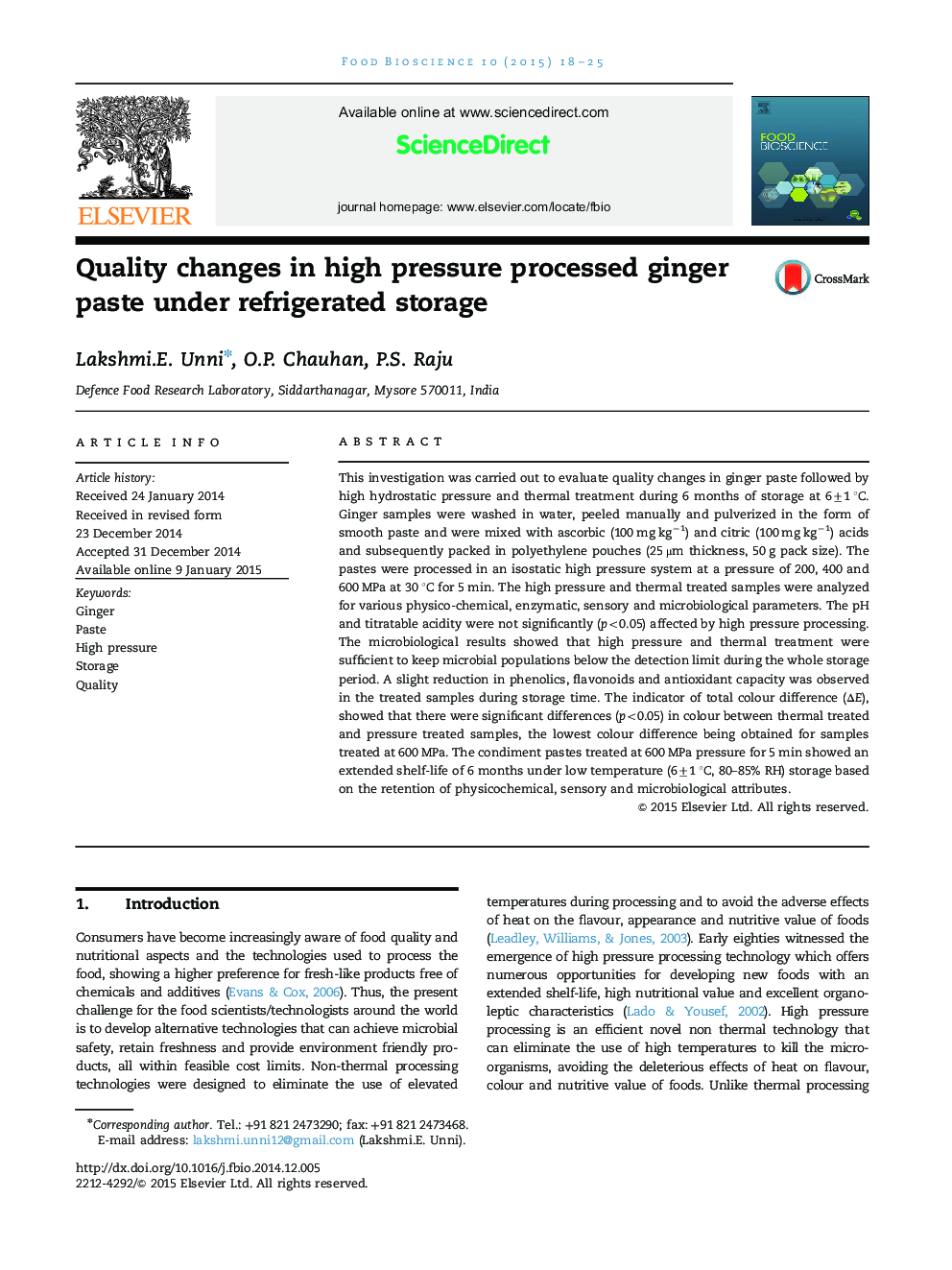| Article ID | Journal | Published Year | Pages | File Type |
|---|---|---|---|---|
| 19724 | Food Bioscience | 2015 | 8 Pages |
This investigation was carried out to evaluate quality changes in ginger paste followed by high hydrostatic pressure and thermal treatment during 6 months of storage at 6±1 °C. Ginger samples were washed in water, peeled manually and pulverized in the form of smooth paste and were mixed with ascorbic (100 mg kg−1) and citric (100 mg kg−1) acids and subsequently packed in polyethylene pouches (25 μm thickness, 50 g pack size). The pastes were processed in an isostatic high pressure system at a pressure of 200, 400 and 600 MPa at 30 °C for 5 min. The high pressure and thermal treated samples were analyzed for various physico-chemical, enzymatic, sensory and microbiological parameters. The pH and titratable acidity were not significantly (p<0.05) affected by high pressure processing. The microbiological results showed that high pressure and thermal treatment were sufficient to keep microbial populations below the detection limit during the whole storage period. A slight reduction in phenolics, flavonoids and antioxidant capacity was observed in the treated samples during storage time. The indicator of total colour difference (ΔE), showed that there were significant differences (p<0.05) in colour between thermal treated and pressure treated samples, the lowest colour difference being obtained for samples treated at 600 MPa. The condiment pastes treated at 600 MPa pressure for 5 min showed an extended shelf-life of 6 months under low temperature (6±1 °C, 80–85% RH) storage based on the retention of physicochemical, sensory and microbiological attributes.
